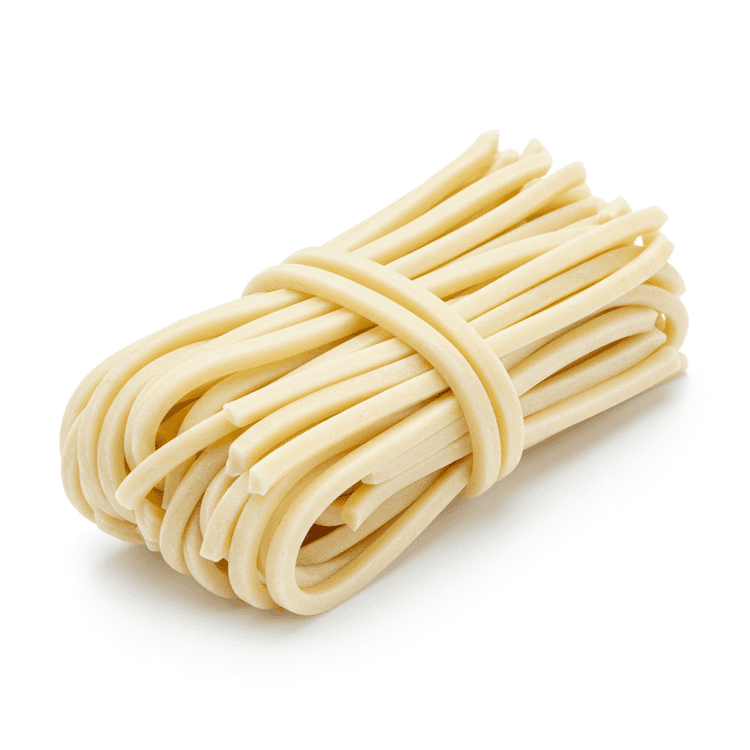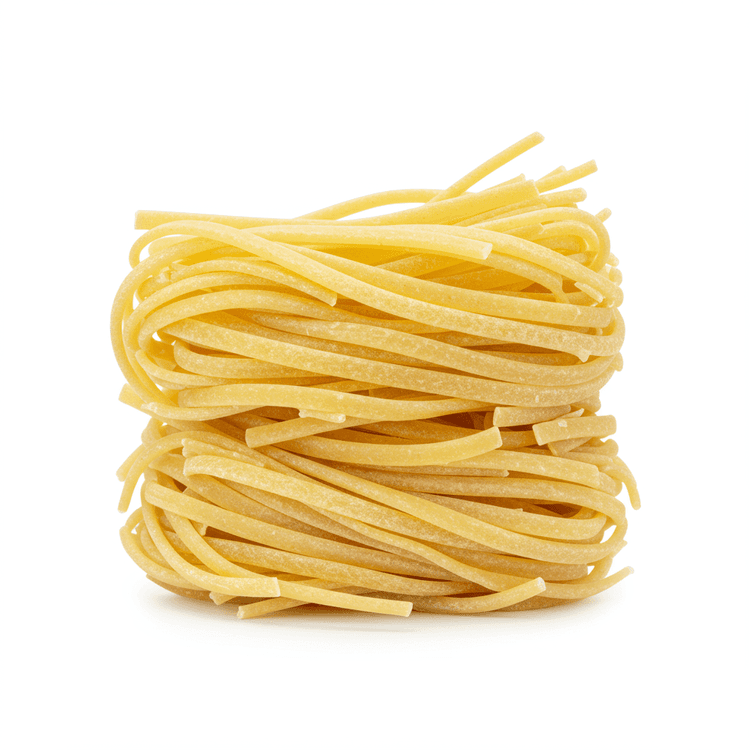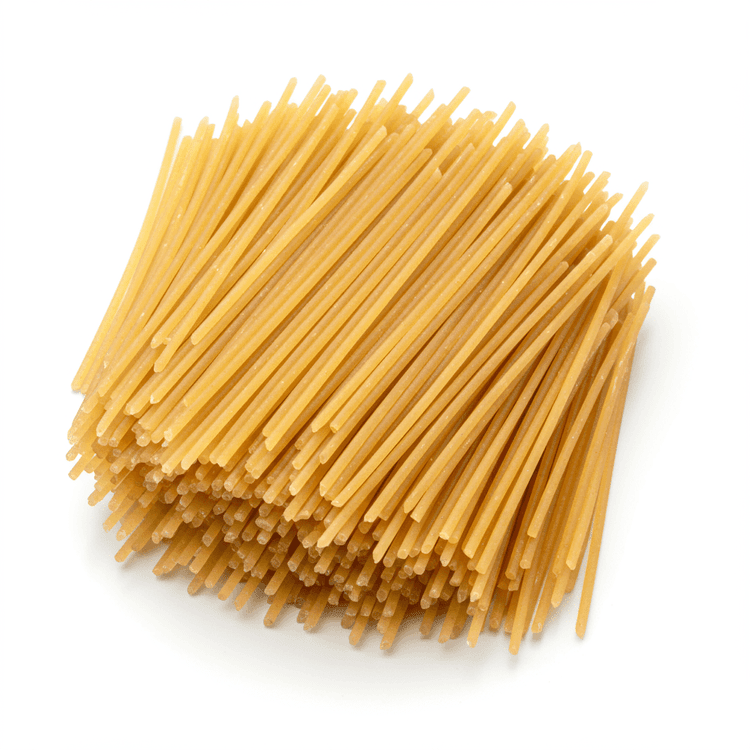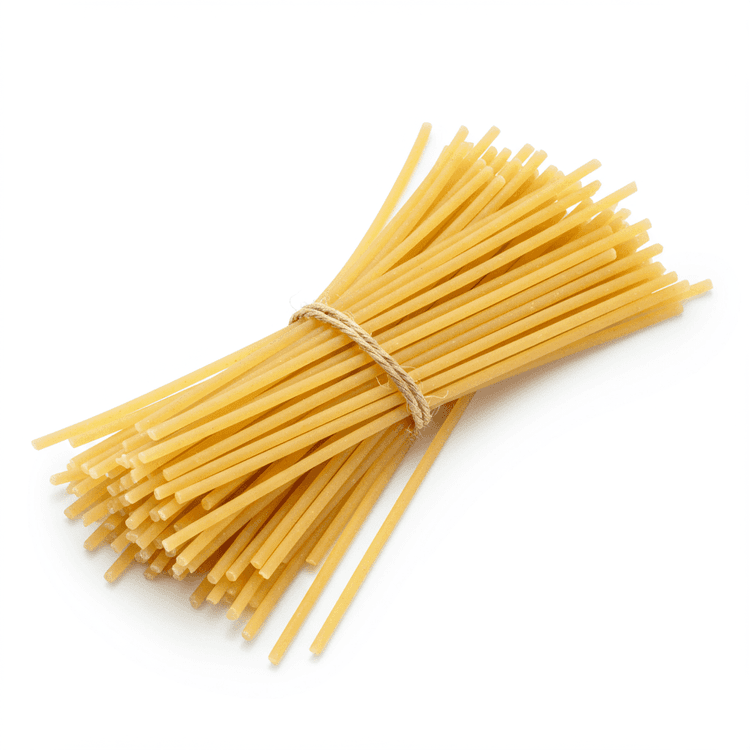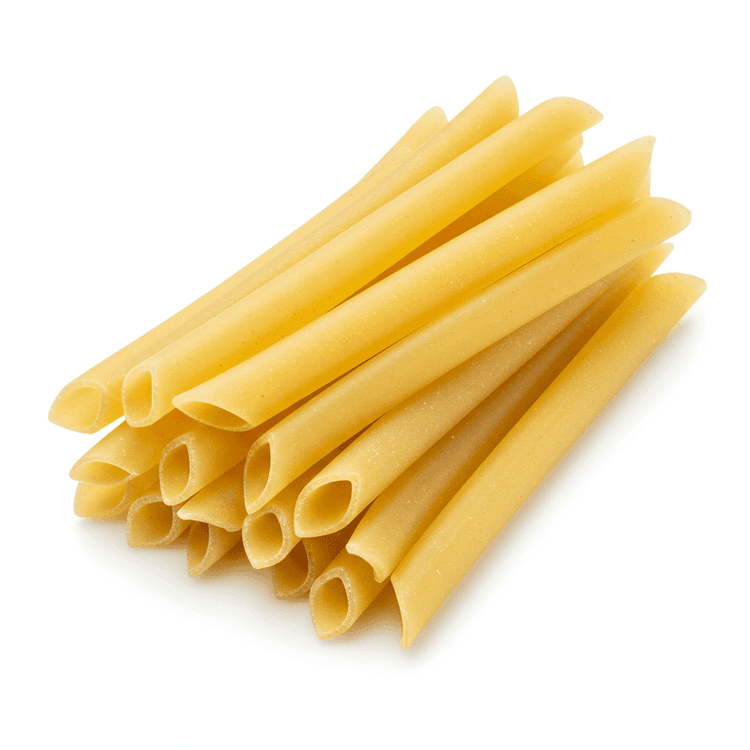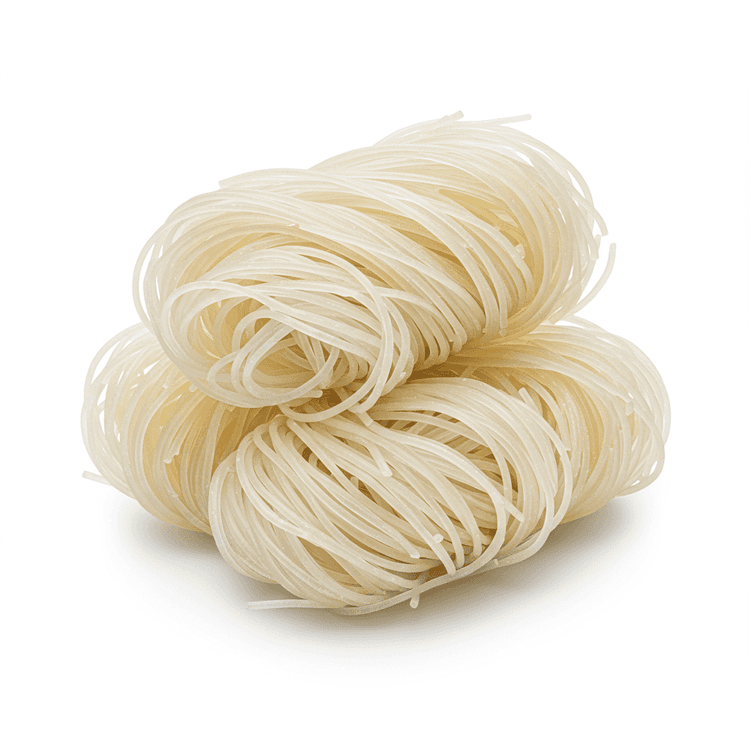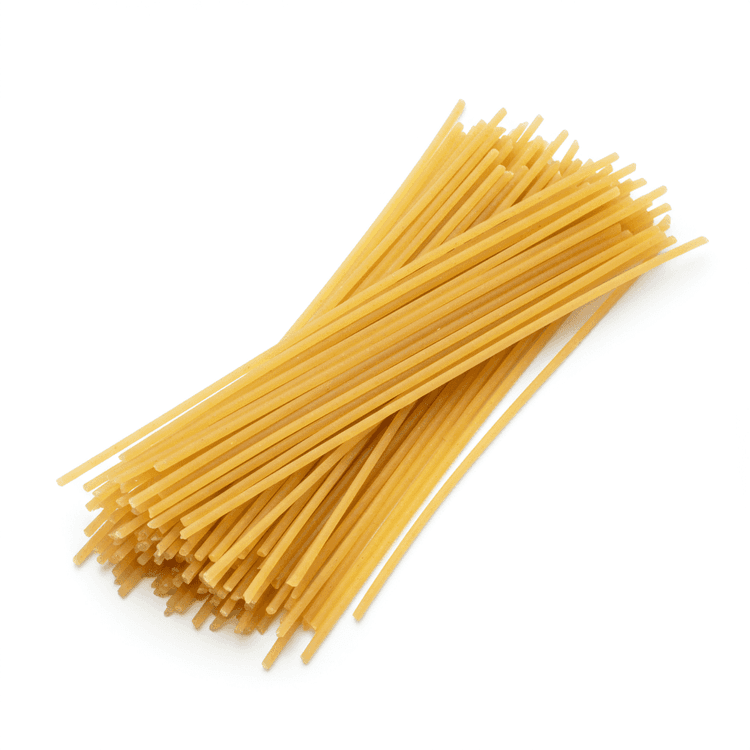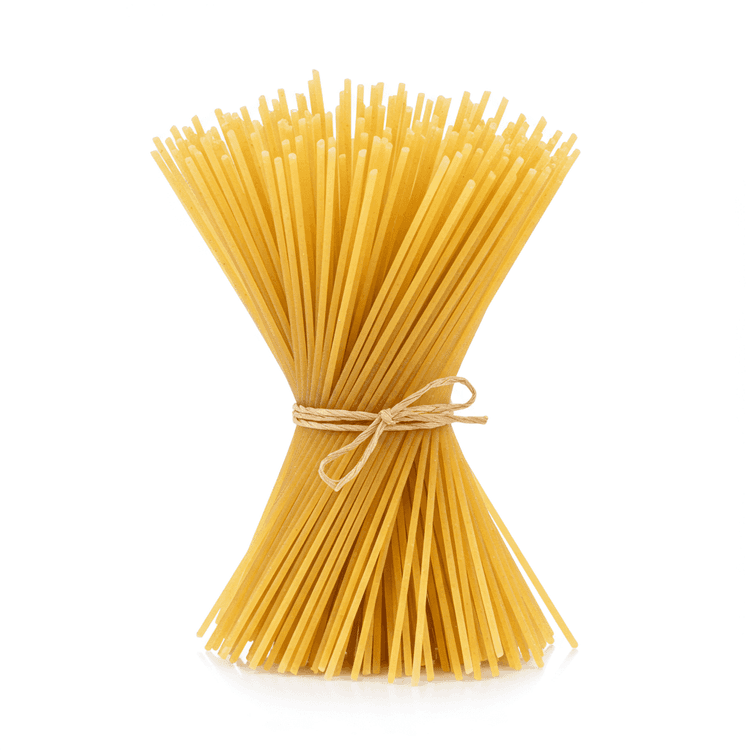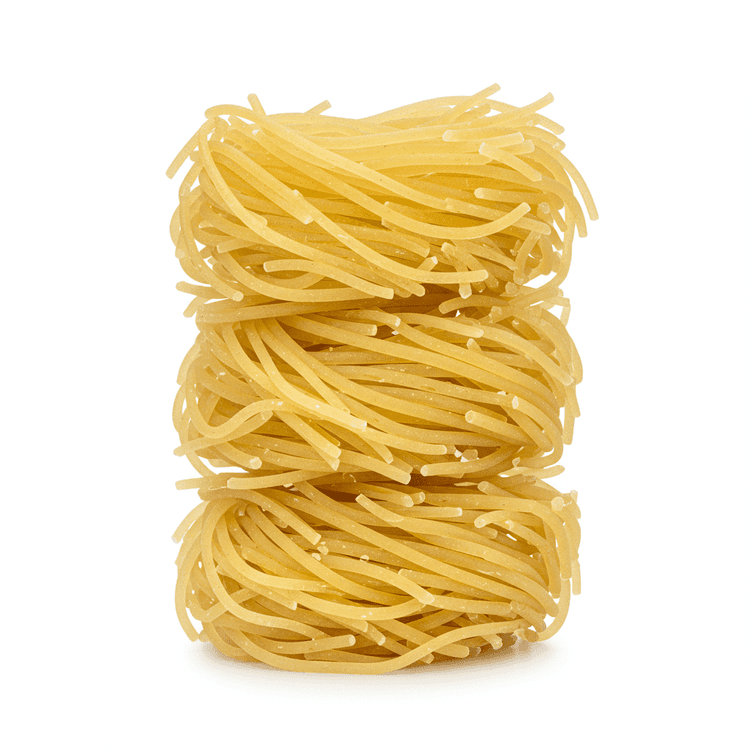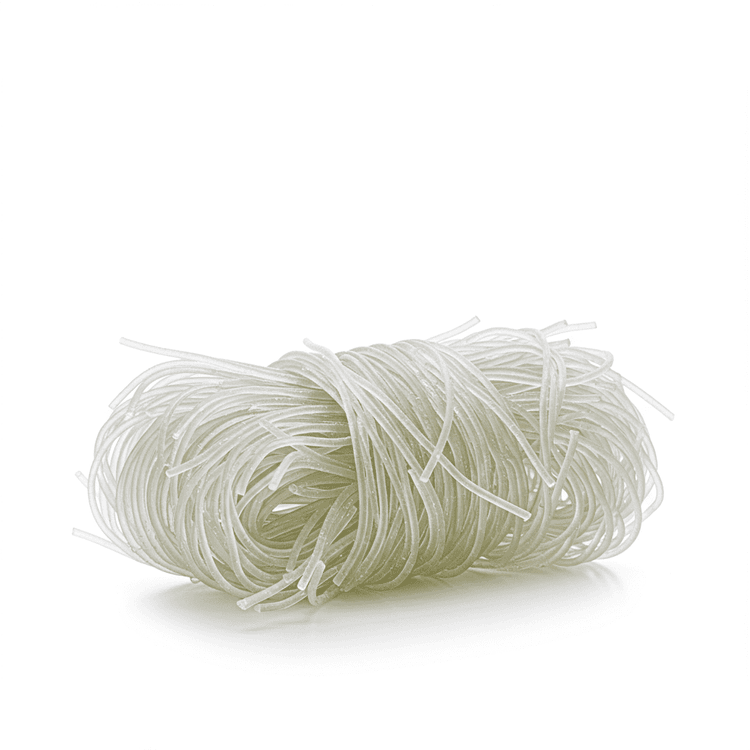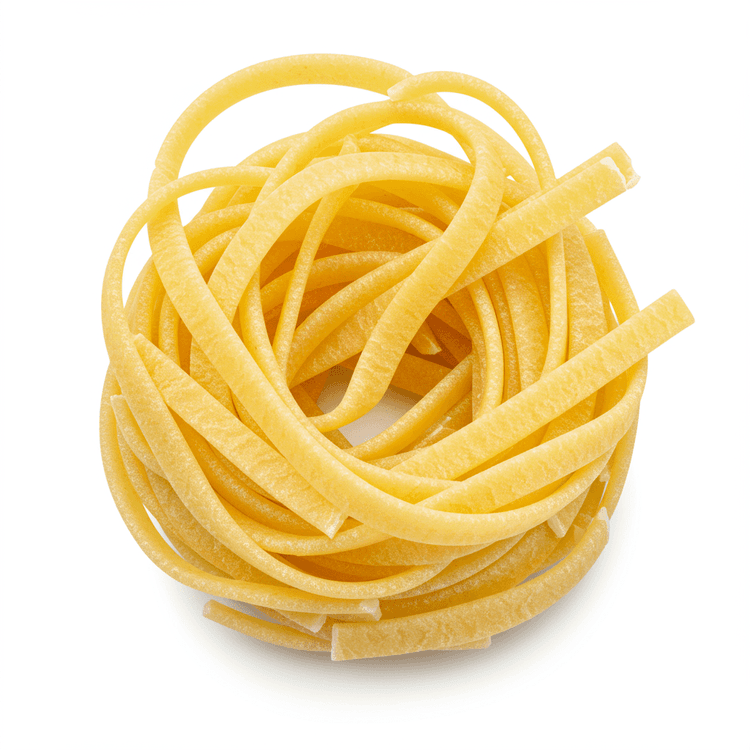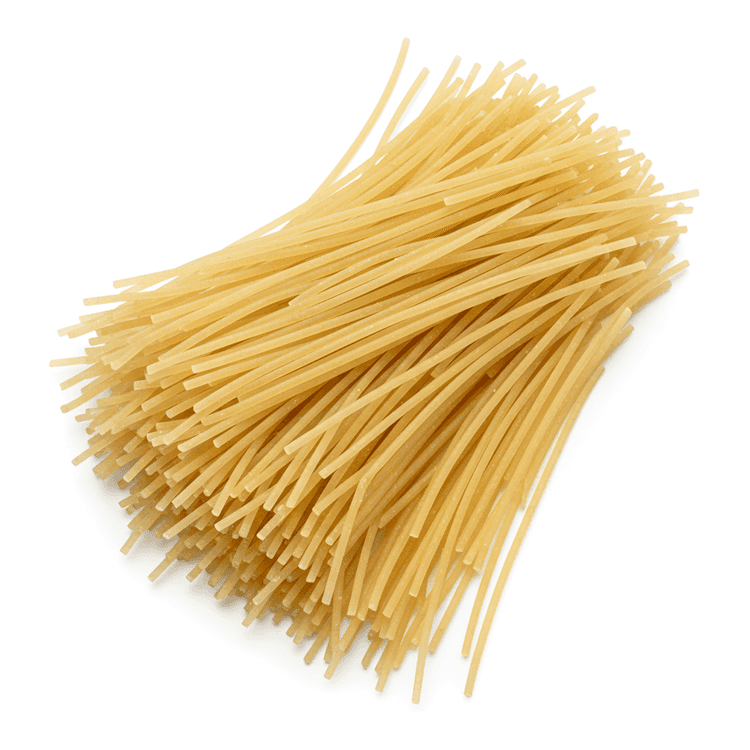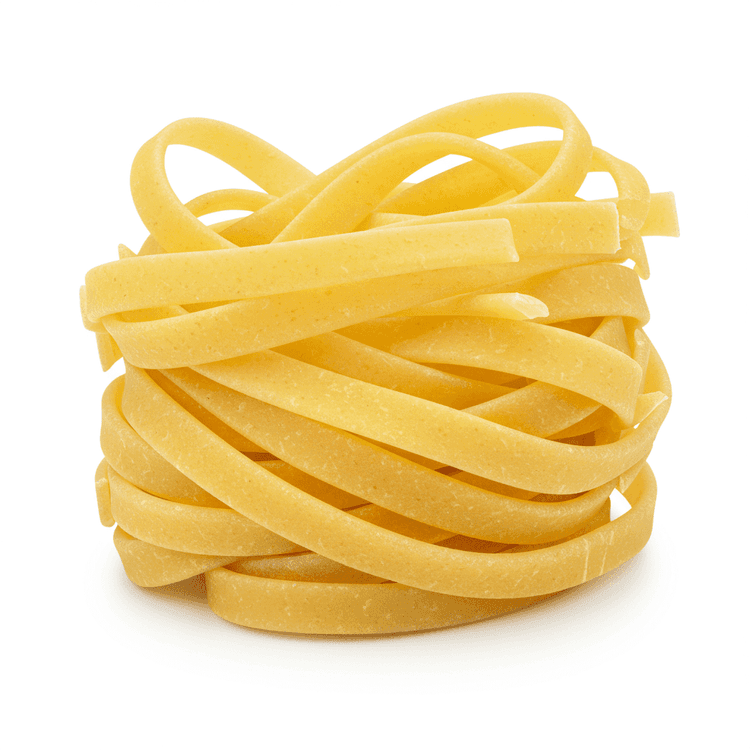
Fettuccine
Fettuccine is a classic Italian pasta, characterized by its long, flat, ribbon-like shape. Made from durum wheat semolina and water (sometimes with the addition of eggs), fettuccine boasts a satisfyingly chewy texture when cooked al dente. Its porous surface readily absorbs sauces, making it an ideal partner for creamy and rich preparations. Fresh fettuccine has a slightly softer, more delicate texture compared to its dried counterpart. The golden-yellow hue of fettuccine adds an inviting visual appeal to any dish. Search for easy fettuccine recipes, homemade fettuccine, or the best fettuccine sauce pairings online.
Common Uses
- Fettuccine Alfredo: Toss cooked fettuccine with a rich and creamy Alfredo sauce, made from butter, Parmesan cheese, and heavy cream. This is the most iconic and popular preparation for this type of pasta. Search for easy fettuccine alfredo recipe online.
- Fettuccine with Mushroom Cream Sauce: Sauté mushrooms (such as cremini, shiitake, or portobello) with garlic and herbs, then deglaze with white wine. Stir in heavy cream and Parmesan cheese for a decadent sauce, perfect for coating fettuccine.
- Fettuccine Carbonara: Prepare a classic carbonara sauce with pancetta or guanciale, eggs, Pecorino Romano cheese, and black pepper. Toss with cooked fettuccine for a flavorful and satisfying meal. A perfect dish for quick weeknight meals.
- Fettuccine with Shrimp Scampi: Sauté shrimp with garlic, butter, white wine, and lemon juice. Toss with cooked fettuccine for a light and flavorful seafood pasta dish, ready in minutes. Look for best shrimp scampi recipe with fettuccine.
- Baked Fettuccine Casserole: Combine cooked fettuccine with your favorite sauce, vegetables, and cheese in a baking dish. Bake until bubbly and golden brown for a comforting and easy casserole.
- Fettuccine with Pesto: Toss cooked fettuccine with fresh pesto sauce, made from basil, pine nuts, garlic, Parmesan cheese, and olive oil. Consider adding cherry tomatoes or grilled chicken for added flavor.
Nutrition (per serving)
Nutrition (per serving)
Calories
111.0kcal (5.55%)
Protein
3.7g (7.4%)
Carbs
22.0g (8%)
Sugars
0.7g (1.4%)
Healthy Fat
0.4g
Unhealthy Fat
0.1g
% Daily Value based on a 2000 calorie diet
Nutrition (per serving)
Calories
111.0kcal (5.55%)
Protein
3.7g (7.4%)
Carbs
22.0g (8%)
Sugars
0.7g (1.4%)
Healthy Fat
0.4g
Unhealthy Fat
0.1g
% Daily Value based on a 2000 calorie diet
Health Benefits
- Provides carbohydrates for energy to fuel daily activities and exercise.
- Offers a source of B vitamins, crucial for nerve function and energy metabolism.
- Can be part of a balanced diet when paired with lean proteins and vegetables.
- Whole wheat fettuccine contains fiber, which supports digestive health and satiety.
Substitutes
Chefadora AI is here.
Experience smarter, stress-free cooking.
Storage Tips
Uncooked fettuccine should be stored in a cool, dry place in an airtight container or its original packaging. This helps prevent moisture absorption and insect infestation. Properly stored, dry fettuccine can last for 1-2 years beyond the "best by" date. Cooked fettuccine should be refrigerated in an airtight container and consumed within 3-5 days to maintain quality and prevent spoilage.
Marnirni-apinthi Building, Lot Fourteen,
North Terrace, Adelaide, South Australia, 5000
Australia
